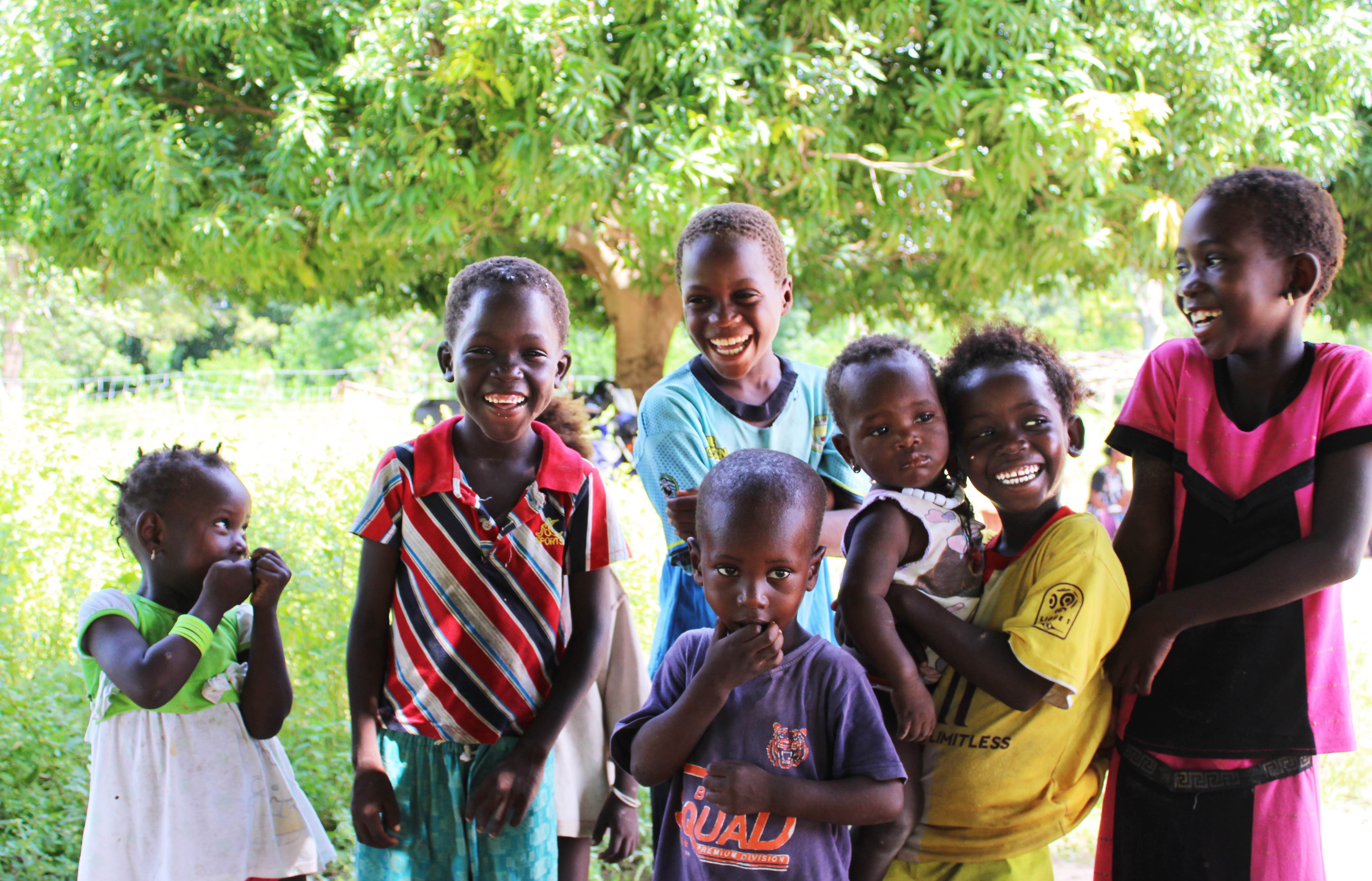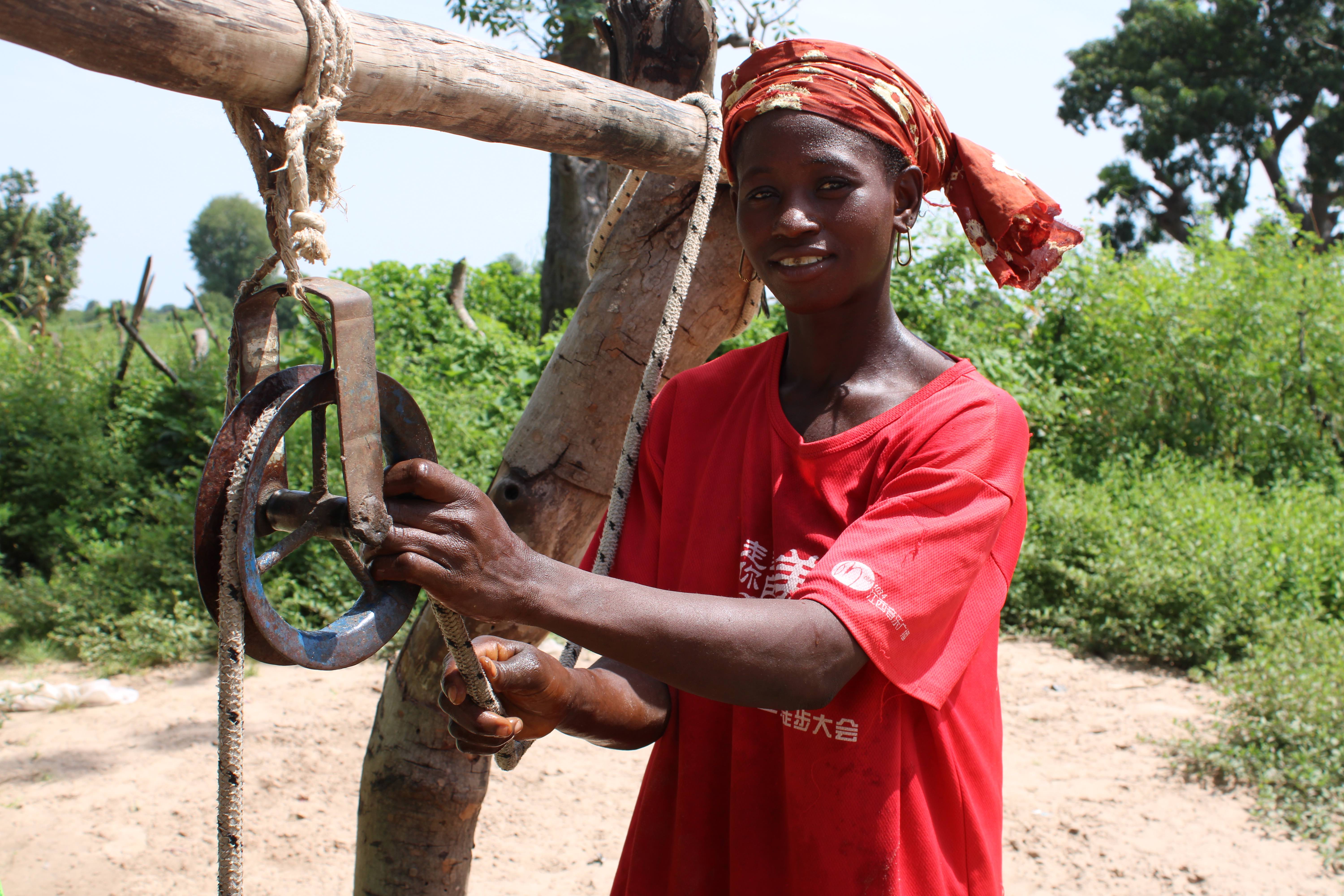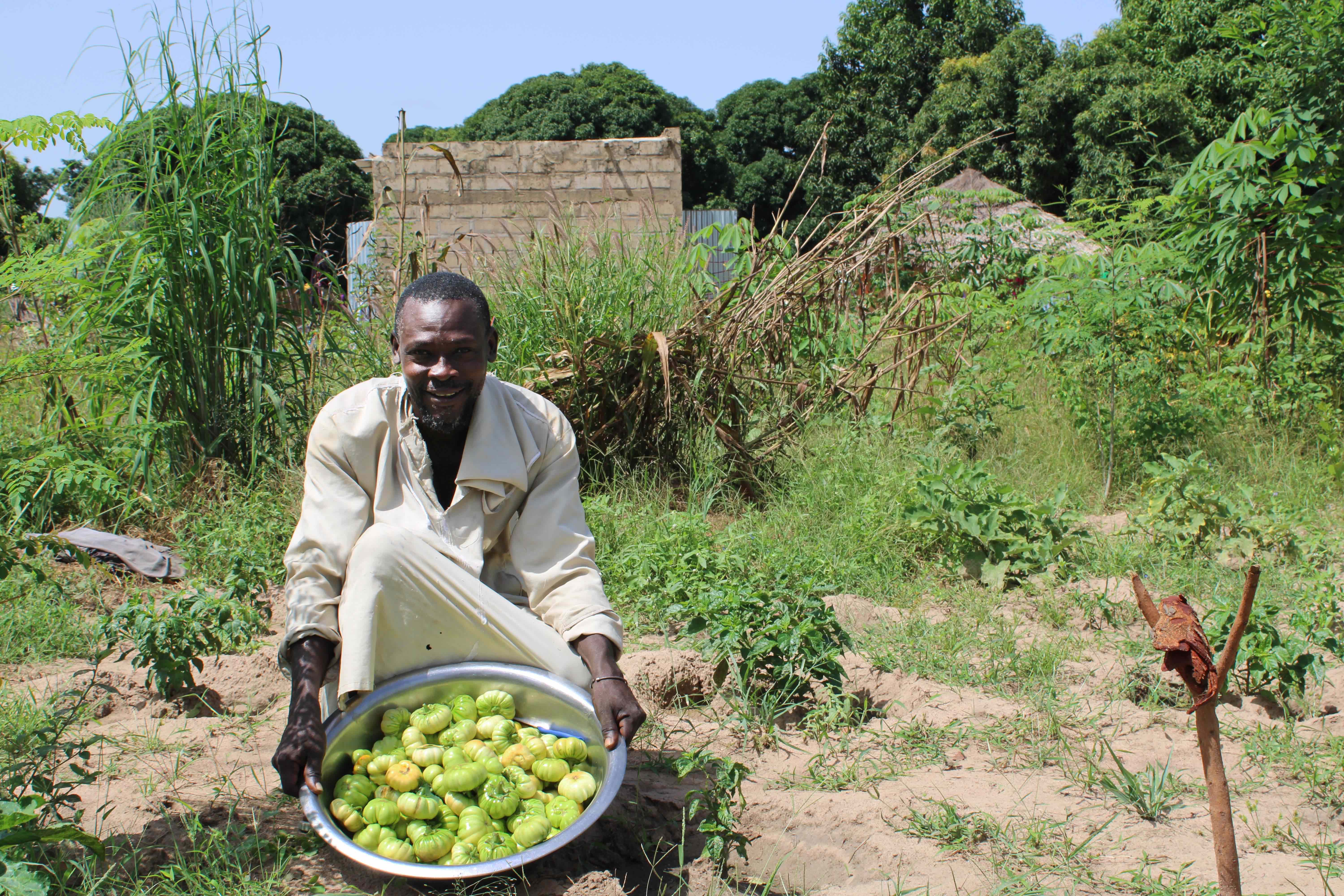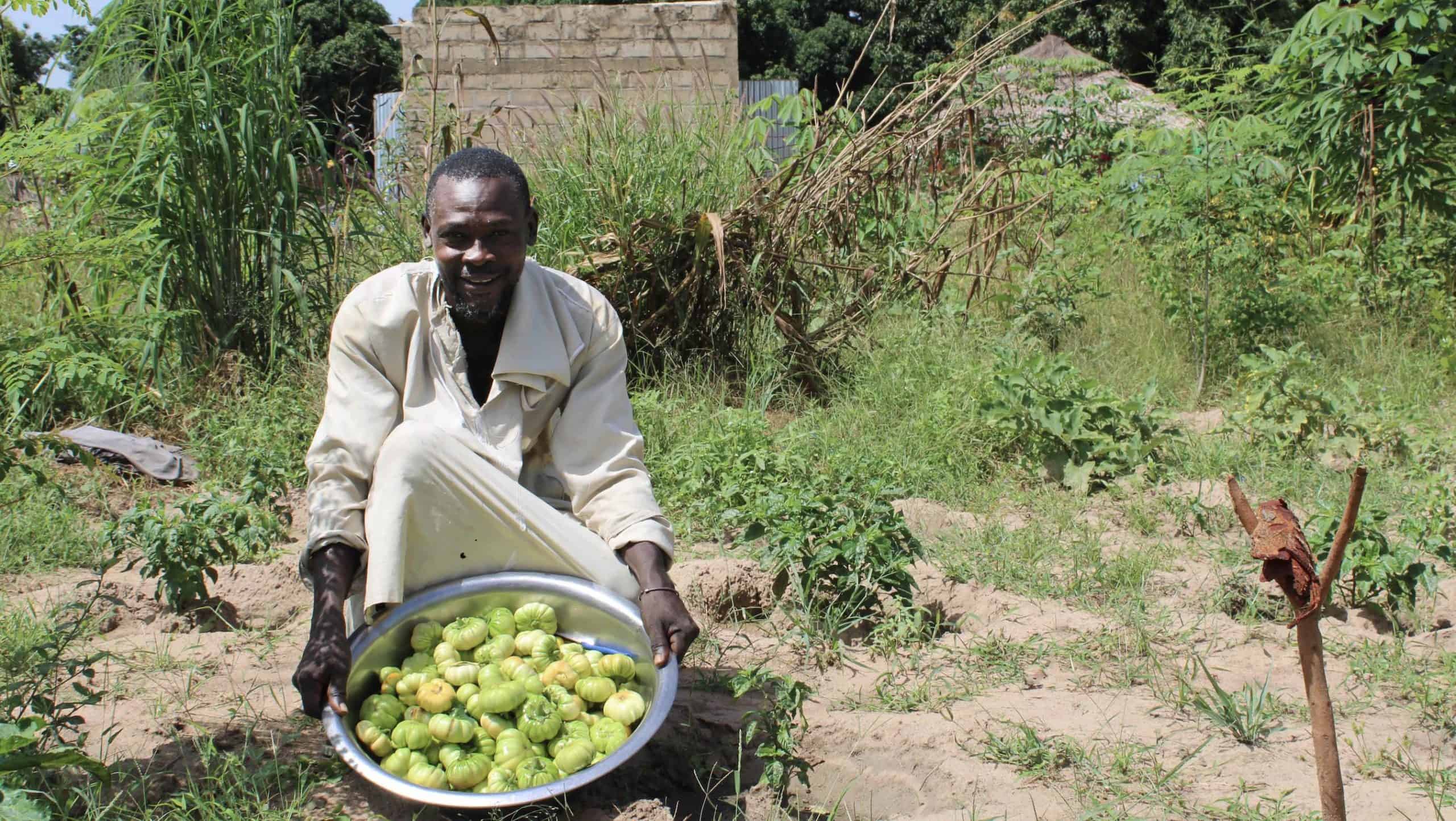
“Among my traveling merchant friends in Dakar, many have gone to Spain. Some got there and started sending money to their families,” says Mamadou. “This made me want to leave because you have to seize every opportunity.”
The UN estimates more than 1.8 million people left their homes in sub-Saharan Africa in 2017 and each year countless migrants drown on their way to Europe. But for Mamadou, leaving seemed like the only option.
“It was a drastic decision but it was the only option in front of me. Die on the way or succeed in Spain. Either way, I preferred those two options to staying and watching my kids starve,” he says.
With his mind made up, Mamadou planned to farm his land through the 2020 season, then leave for Spain at the end of the year. Fortunately, his circumstances soon changed.

In early 2020, Trees for the Future (TREES) began work in Fatick. Local staff connected with villages, including Mamadou’s village of Keur Sambaré, and began providing regenerative agroforestry training to farming families. Using what is known as the Forest Garden Approach, Mamadou and his fellow farmers brought their degraded land back to life with trees and sustainable farming practices. Where before there were just 20 trees there are now more than 1,000. In addition to the 1,000 agroforestry, fruit, and nut trees, Mamadou grows dozens of fruit, vegetable, and grain crops that he and his family can eat and sell.
“The future seems easier to face since the arrival of Trees for the Future in our lives,” says Mamadaou’s wife Kiné Coulibaly. “In six months our food needs were met. Now we have the choice to prepare this or that dish, whereas before there was no choice, we prepared what we had.”
“My brothers and I no longer go to school hungry, I can concentrate better,” says 12-year-old Samba.
Since joining the program the family has also been able to save and invest in their own success, buying a goat and chickens and even starting their own soap business.

With a ready supply of food and income coming from his land, Mamadou canceled his plans to leave his home. In October 2020 a boat carrying 200 Senegalese migrants to Spain’s Canary Islands caught fire and capsized – 140 people died.
“I will never stop thanking the initiators of such projects. You cannot know how much this project is changing people’s lives,” Mamadou says.
Trees for the Future supporters make this work possible. Become a monthly donor by joining the Sustainer Circle and make a lasting impact on farmers like Mamadou.
